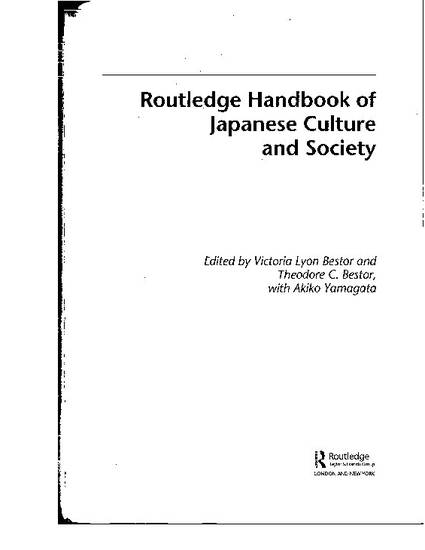
Contribution to Book
Japanese Film and Television
Routledge Handbook of Japanese Culture and Society
(2011)
Abstract
Although the motion pictures and television have sometimes been rivals in Japan, they share a complex history of shaping and being shaped by struggles over defining a new modem mass culture in a country that was itself experiencing conflicts over how to delineate the Japanese nation and its culture within capitalist technological modernity. Even the very definition of these media - their essence, meaning, and function - was the focus of debates. The question was not just how film and television should represent - or construct - Japanese culture at a time of increasing Westernization and a rise in Japanese global power, but also how meaning was to operate in an age of mass cultural production and consumption. As Japanese authorities both worried about and attempted to manage these media and their viewers, foreign audiences appropriated them, and their asserted difference from norms in the West or the rest of Asia, for their own ends. This chapter outlines these conflicts chronologically, focusing particularly on cinema.
Keywords
- Japanese cinema,
- television
Disciplines
Publication Date
2011
Editor
Victoria Lyon Bestor and Theodore C. Bestor, with Akiko Yamagata
Publisher
Routledge
Citation Information
Aaron Gerow. "Japanese Film and Television" Routledge Handbook of Japanese Culture and Society (2011) p. 213 - 225 Available at: http://works.bepress.com/aarongerow/42/